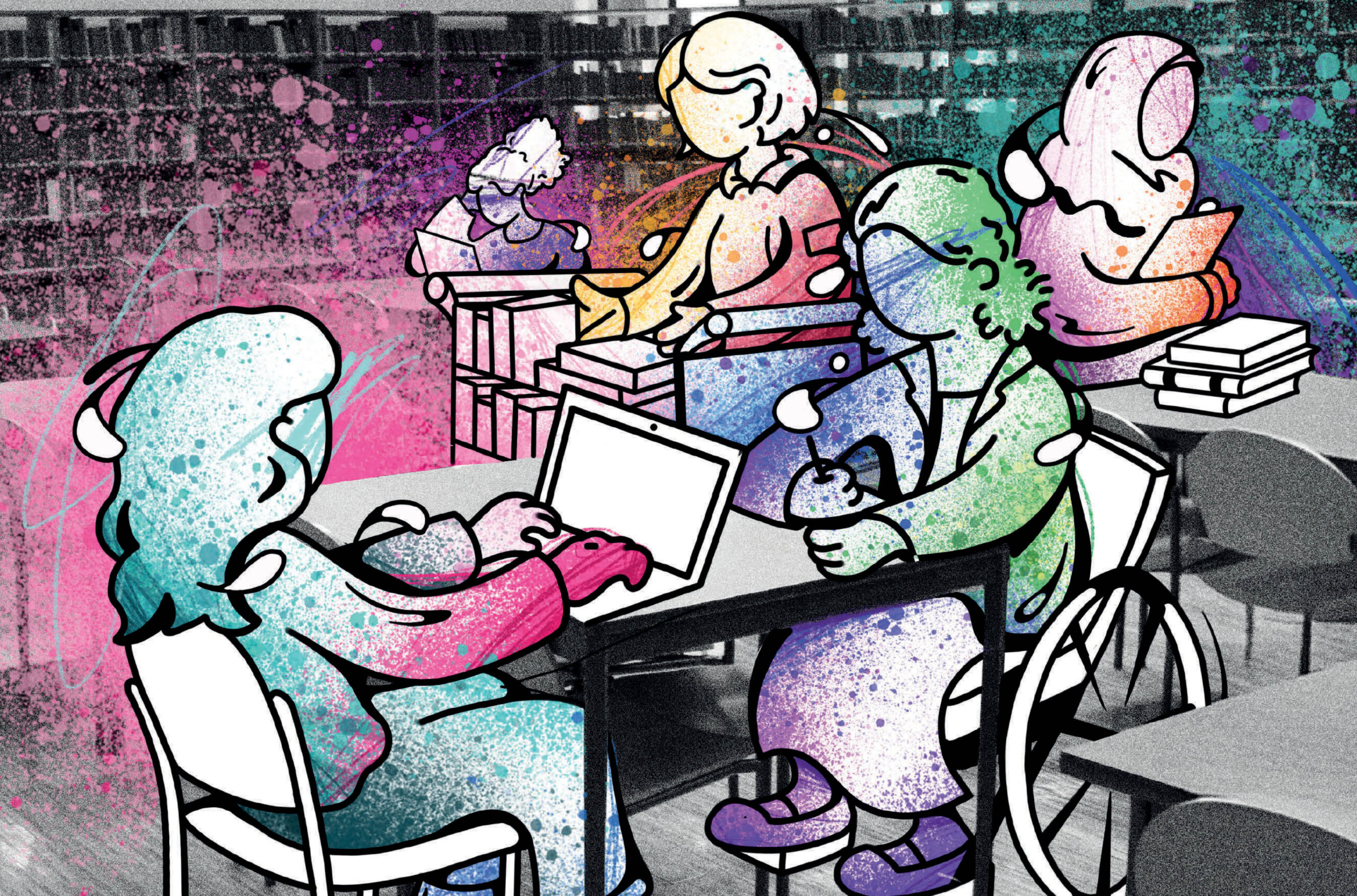Other duties as assigned?
Universities need people, policies and protocols that take into account how to support the success of BIPOC students from an equity, not equality, perspective.

The few racialized staff members working in higher education, including myself, carry an unbalanced burden of embodying lived experience, creating space for others in their unlearning and learning journey of equity, diversity and inclusion, and delicately finding ways to critique the unintended outcomes of university policies, statements and actions from precarious, disempowered positions. These are the “other duties as assigned” in our job description, or the emotional labour of too many Black, Indigenous and Persons of Colour (BIPOC) staff.
An example: a student sits silently across from me after sharing the gravity of a decision they have just received by email. It’s from a colleague who I know very well, about a policy that I am familiar with, but have reservations about. After what feels like an hour of silence, the student mumbles through tears of embarrassment: “Will I go to hell?” No amount of training could have ever prepared me for this question; yet I knew it was important to hold space for the student to feel their way through the pain they were experiencing. No surprise since it’s an endless trend in my office — the student is BIPOC and shares that they feel comfortable with me because “I just get it.” I sit with them, as I have done with countless BIPOC students, as they experience a range of emotions that would lead most colleagues to call campus security. Anger. Frustration. Crying. Relentless sobbing. Silence. I take a deep breath. “What makes you ask this?”
Emotional labour is hidden and requires me to suppress or redefine how I express emotions to create a positive and transformative student experience. This added labour also requires that I find time during the workday, or even at night or on weekends, to make space for these students in whatever time they need; it could take 30 minutes, two hours or multiple days. It requires every ounce of my strength to not let my own emotions interfere with a student while they experience a moment for which the details will be fuzzy but the painful memory will last forever. It requires knowing which colleagues I can rely on to cover my duties so that I can be with this student. It requires setting aside gut reactions to daily microaggressions while holding space for a student, attending other meetings, and producing exceptional work as there are no margins for error for BIPOC staff.
That’s only half of my day. After lunch, if I’m able to even take a break, I’m fighting harder for flexibility and exemptions while being told a policy isn’t really intended for “that” or “those type of students.” Or I’m being told how lucky the students are to have me because I go above and beyond my duties. This compliment becomes a confusing double-edged sword — it implies I’m an emotional labour martyr while acknowledging there is little choice in being available to BIPOC students who value staff that “get it” more than the practices, protocols and policies we enact every day. It also means sitting through meetings where countless moments of silence to honour victims of racialized violence are quickly followed by an unbothered mispronunciation of my name or comments that contradict the expressions of intercultural understanding, compassion and care that were displayed moments ago.
You may ask: so, what do you want? I ask for the momentum of change, understanding and commitment during the pandemic to continue. The true expectations of “other duties as assigned” must be included in the job description so that the right candidates are hired. I need policies and protocols that take into account how to support the success of BIPOC students from an equity, not equality, perspective. I need to stop relying on the social capital I’ve built across my university to support BIPOC students, as any requests are eventually seen as a favour that was extended to me and the student. I need the fragility that so often arises when hearing the lived experiences of many BIPOC community members and the fear of being called racist to be set aside and replaced with a commitment to do better. I need more BIPOC senior leaders who bring diverse perspectives to the table where the most important decisions are being made. I need the constant turnover of BIPOC colleagues who reach a point of no return in choppy institutional waters to stop, and to see more substantial efforts to retain incredibly gifted and talented people.
I need you to see that this article is not about what I need, it’s about what we all need if we want to see systemic change in higher education. Changing the narrative, symbolism and truth of a one-line sentence at the end of a job description is one way to do this, and so much more.
Rohene Bouajram is the associate director of IBPOC strategic initiatives at the University of British Columbia.
Featured Jobs
- Canada Excellence Research Chair in Computational Social Science, AI, and Democracy (Associate or Full Professor)McGill University
- Veterinary Medicine - Faculty Position (Large Animal Internal Medicine) University of Saskatchewan
- Business – Lecturer or Assistant Professor, 2-year term (Strategic Management) McMaster University
- Psychology - Assistant Professor (Speech-Language Pathology)University of Victoria













Post a comment
University Affairs moderates all comments according to the following guidelines. If approved, comments generally appear within one business day. We may republish particularly insightful remarks in our print edition or elsewhere.
6 Comments
Excellent article that deserved to be shared and reflected upon widely. Thank you, Rohene, for your courage and insight.
Thank you Rohene,
This is such a necessary and important conversation. I especially want to discuss this point “the constant turnover of BIPOC colleagues who reach a point of no return in choppy institutional waters to stop, and to see more substantial efforts to retain incredibly gifted and talented people”. This will take some serious unsettling at the top.
Setting aside the fact that the article is jargon-filled, it paints a portrait of BIPOC students as weak, helpless, and emotionally unprepared for university life. I cannot think of a worse way to create stereotypes about and caricatures of BIPOC students than what has been portrayed here by the author.
Stuart, bless you heart, we DID all learn the jargon. You were away that day, remember? I forget the details exactly, but it had something to do with Academic Freedom, white faculty members saying the n-word in the classroom without considering the larger impacts on students in the room, and making sure you are never inconvenienced by a student who wishes to defer their exams.
If you HAD been there on that day, we also covered how the article Rohene has written is not in fact about students, but actually about her experience as a BIPOC person. This SHOULD interest you, because this is the experience of your peer. Just to be clear, peer does not mean “personal secretary down in student services”. It means colleague. Perhaps you’d like to extend your outcries of ‘Academic Freedom’ to your other colleagues, outside of faculty? But maybe not – it seems you are currently far too interested in maintaining the status quo, as it currently benefits you enormously.
I certainly didn’t read it that way. There are some students of any characteristic you choose who will experience emotional traumas and need support. Some of them are BIPOC. Some are older, younger, far from home, living at home, male, female, etc. The author was noting their own experience – that there is almost an expectation that a BIPOC staff member is the “right” person to see BIPOC students who are having difficulties, whether that expectation comes from the staff or the students. That doesn’t imply that all BIPOC students will have issues, but that some will and that the performance of duty of care should be better acknowledged and supported, as it should be for other staff who take on similar duties. As a female in a very male-dominated department, I see the same expectations being put on female staff who are often seen as the first port of call for students in distress.
Brilliant. Thank you Rohene.